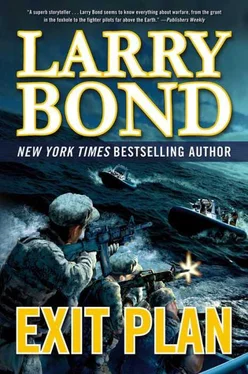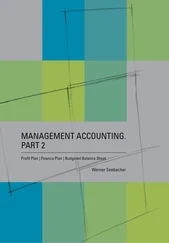* * *
Although they didn’t fill the auditorium, it was a sizable group. Moradi saw Colonel Zamanian and his staff seated together on one side, then in a separate group, the scientists and engineers, with Dr. Moham, the head of the centrifuge program, fidgeting in the front row.
Davood Moham was young, brilliant, and outspoken. He’d been picked for the job three years ago, after the “second-generation” centrifuge design had failed. The physicist had been critical of the attempt, correctly predicting how it would fail. Now, after two major failures of his own, he was looking over his own shoulder. Only in his thirties, he looked much older, his hair thinning, and his face drawn. It looked like he hadn’t gotten a lot of fresh air.
Dr. Rashid Sabet, the civilian who managed the entire nuclear weapons program, had flown in last night from Arak, looking for his own answers. If Moham represented youth and energy, Sabet was experience and wisdom. Even hardened war veterans knew Sabet’s reputation. The Iranian government and people treated him almost like a national treasure. In his seventies, thin and almost frail, he projected a presence almost as strong as Moradi’s, and while Sabet technically reported to the general, Moradi sometimes felt like a university student, and found himself deferring to Sabet almost automatically.
Moradi heard the chatter die as he approached the stage. They would be scared, defensive. They knew his reputation, and some were nervously glancing toward “Major” Rahim. Frightened people were not helpful.
Instead of heading for his own seat, the general turned and walked over to the pair, greeting Moham and Sabet warmly. Smiling and offering his hand to Moham, the general said, “Dr. Moham, I’m glad nobody was injured in the accident.” Surprise flashed across the civilian’s face, but he quickly hid it and rose to shake the general’s hand. “I’m sure we’ll be able to recover from the setback quickly,” Moradi continued. “I’m looking forward to your recommendations.”
“Yes.” Moham paused, unsure of how to answer. Moradi could tell that his positive tone had unsettled the physicist. That was good. Nodding to Dr. Sabet, Moradi took his place with his staff. Conversation immediately stopped, and Moham stood and announced, “Mr. Yazdi will start with a summary of the accident and what we have learned.”
Yazdi looked like a university student, with glasses and longer-than-fashionable hair. Nervously, he walked to the podium and opened a laptop computer. He pressed a key and the auditorium’s screen came to life with a simple title, “Natanz Centrifuge Cascade Failure Reconstruction.” The corners of the screen labeled the presentation as “Top Secret.”
“General, Dr. Sabet, this briefing will describe our investigation and findings of the accident.” The engineer pressed a key on his laptop and the next slide appeared — a time line.
Moradi waited for the third slide before speaking up. “Is this the same material I was sent?”
Yazdi, a little flustered, quickly nodded. “Yes, sir. We didn’t know if you’d had a chance to review it.”
“Well, ask before you waste my time. Is there anything new in this? Any changes since you sent it to me?”
“Ah, no, sir.”
“Then go to the last slide,” Moradi ordered impatiently.
Yazdi fiddled with the laptop for a moment, and a page labeled “Conclusions” appeared on the screen.
Moradi spoke after a moment’s quiet. “Why did you stop the investigation at this point?”
Yazdi, who was supposed to be briefing the general, seemed surprised by the question. After a moment, he answered, “Sir, we are confident that we’ve found the cause.” He pointed to the screen, quoting the text. “Voids created by improper curing allowed microfractures to form, causing carbon fiber delamination at high rotational speeds.”
“That’s all fine,” Moradi answered. “But what steps are you taking to correct the error? Who was supervising the curing process? Why didn’t they follow proper procedure?”
Yazdi looked hopefully at his director, and Dr. Moham rose. “General, we reviewed all the steps in production as a part of the investigation. Every procedure was followed and double-checked. An error might cause an anomaly in one or two centrifuges, but not the whole cascade. Once we knew what to look for, we found voids and microfractures in every centrifuge, even the ones that were only damaged — hence our conclusion of improper curing.”
Moradi appeared confused, but also irritated and impatient. “And you are saying all the centrifuges were manufactured improperly? Why was such a serious error allowed to occur? Who was responsible?”
Dr. Sabet now stood to join Moham. “General, please. There was nothing that suggested there was an error during the manufacturing process. We developed the procedure ourselves; we had to due to the sanctions. It was incorrect. But now we know better and we’ll devise a better curing process.”
Moradi now understood, but clarity didn’t bring enlightenment. “How long?”
Sabet looked to Moham, who didn’t answer immediately. Several expressions passed across his face, all of them thoughtful. “We only confirmed the cause late last night. It will take a few days just to develop a systematic plan.” He paused again, then estimated, “It will take at least several months.”
Moham warmed to the plan as it took shape in his mind. “We’ll investigate every part of the process. It’s most likely the epoxy resin chemistry, but it could be the temperature, or even something mechanical like vibration or rotation during the curing process.” Moham’s tone was earnest, full of dedication. “We can’t tell right now. I wouldn’t even hazard a guess. But we’ll find it, General. I’m sure we can make this process work.”
“But you can’t predict how long it will take to find a solution,” Moradi answered.
“I won’t even guess until we’ve narrowed down the possibilities. As I said, at least several months — and first we have to rebuild the lab, or set up a new one.” He paused, realizing what kind of news he was delivering. When he continued, the physicist’s tone was less animated, but more earnest.
“Were in unexplored territory, sir.” Dr. Moham gave a small smile. “The technical challenge is what attracted me to this position. This is new technology. It can’t be rushed. If we had access to high-quality steels, this would be much less expensive, in both time and money.”
“Don’t wish for what we can’t have,” Moradi growled. Improved centrifuge designs required maraging steel, a high-strength, high-temperature alloy that could be used in guided missiles, jet engines, and enrichment centrifuges, as well as dozens of peaceful applications. But Iran couldn’t make it. Iranian metallurgy wasn’t up to the task, and would not be for the foreseeable future. And they couldn’t buy it abroad. The sanctions did have some effect.
So they tried end-arounds and substitutes. Moradi often thought of the Germans, late in World War II. Denied strategic metals and petroleum, they developed processes to turn coal into gasoline, and built fighters out of wood. But it was always harder and took longer. Engines didn’t work as well using substitute gasoline. And some of the fighters crashed.
And sometimes, the centrifuges failed. And failed again. And again.
Moradi let Colonel Nadali run the rest of the meeting. The test facility had to be rebuilt and materials for the new test program obtained. As they hammered out plans, the general studied them, half-listening, wondering if it was all wasted motion.
He had handpicked these men for the most important task in Iran, just as the Supreme Leader, Grand Ayatollah Ali Khamenei, had chosen him. Had he made a mistake? The Supreme Leader had given his personal assurance that Moradi could call on any resource the country had. Surely with the entire nation behind them, they could construct a nuclear device.
Читать дальше












